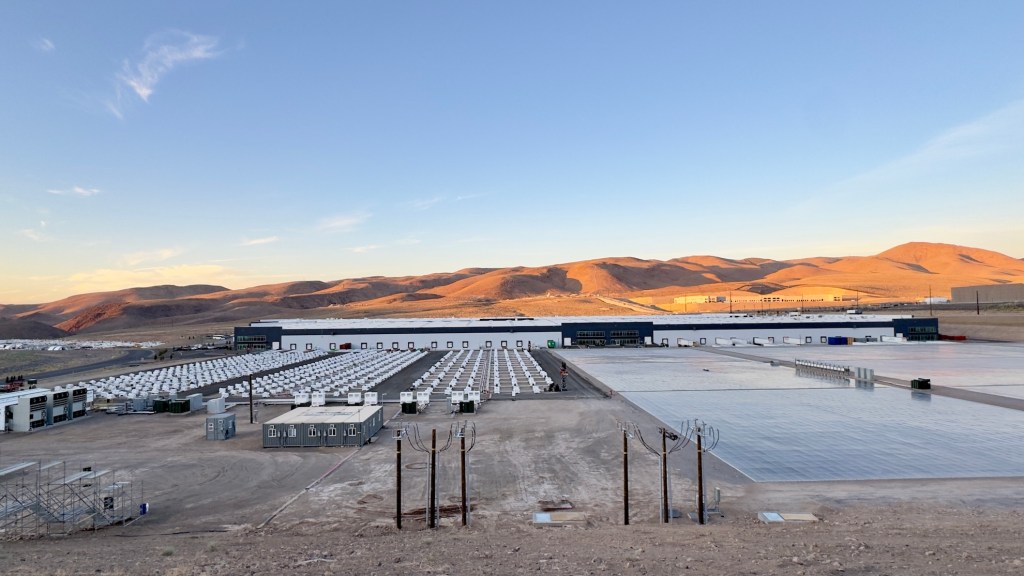In a significant advancement for sustainable energy solutions, Redwood Materials has launched a new energy storage division, Redwood Energy, focusing on repurposing retired electric vehicle (EV) batteries to power AI data centers. This initiative marks a pivotal step in addressing the growing energy demands of the artificial intelligence sector while promoting environmental sustainability.
Innovative Microgrid Deployment
At the heart of this venture is a large-scale microgrid located in the Nevada desert. This facility comprises 805 decommissioned EV batteries, each encased in simple white tarps, forming North America’s most extensive microgrid to date. This system currently supplies power to a modular data center operated by Crusoe, a company specializing in AI infrastructure. The microgrid generates 12 megawatts of power and has a storage capacity of 63 megawatt-hours, effectively supporting 2,000 graphics processing units (GPUs) essential for AI computations.
Strategic Partnership with Crusoe
Redwood Energy’s collaboration with Crusoe is a strategic move to harness renewable energy sources for high-demand computing operations. The microgrid utilizes energy from an adjacent solar array, ensuring a consistent and sustainable power supply. This partnership not only demonstrates the feasibility of integrating repurposed EV batteries into energy storage systems but also sets a precedent for future applications in various industries.
Redwood Materials’ Recycling Milestones
Founded in 2017 by JB Straubel, former Chief Technology Officer at Tesla, Redwood Materials has rapidly become a leader in battery recycling. The company reports recovering over 70% of discarded battery packs in North America, processing more than 20 gigawatt-hours of batteries annually—equivalent to approximately 250,000 EVs. This extensive collection has enabled Redwood to stockpile over 1 gigawatt-hour of used batteries, with an additional 4 gigawatt-hours expected in the near future.
Future Expansion Plans
Looking ahead, Redwood Materials aims to deploy 20 gigawatt-hours of grid-scale storage by 2028, positioning itself as the leading repurposer of retired EV battery packs. This ambitious goal underscores the company’s commitment to creating a circular supply chain for electric vehicles and clean energy products, thereby reducing reliance on newly mined materials and minimizing environmental impact.
Economic and Environmental Implications
The launch event for Redwood Energy was entirely powered by the microgrid, highlighting the practical application and reliability of the system. Straubel emphasized the project’s profitability and rapid construction timeline of four months, indicating a scalable and economically viable model for future deployments. This initiative not only addresses the pressing energy needs of AI data centers but also contributes to the broader goal of sustainable energy utilization.
Industry Impact and Collaborations
Redwood Materials’ entry into the energy storage market signifies a transformative approach to battery lifecycle management. By repurposing end-of-life EV batteries, the company is setting a new standard for sustainability in the tech industry. Collaborations with major companies like Toyota, Panasonic, and GM further solidify Redwood’s role in shaping the future of energy storage and battery recycling.
Conclusion
Redwood Materials’ innovative use of retired EV batteries for energy storage in AI data centers represents a significant leap forward in sustainable technology. This initiative not only provides a practical solution to the energy demands of the rapidly growing AI sector but also exemplifies a commitment to environmental stewardship and resource efficiency.



